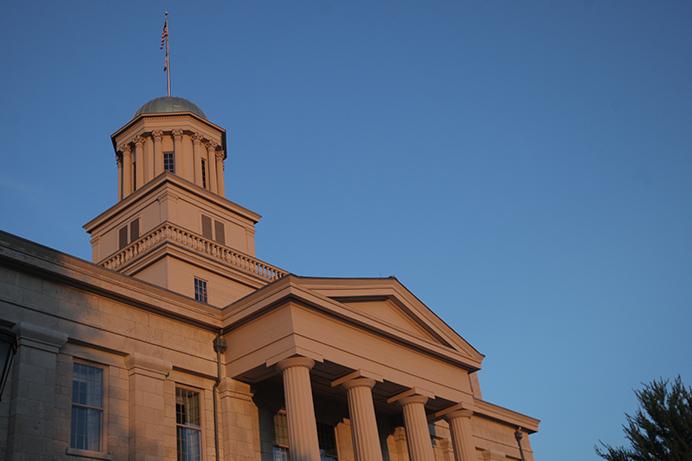A group of graduate students came together in a conference center at the University Capitol Center on Monday evening to discuss ways to increase communication among peers as part of the Graduate Student Senate meeting.
At the helm of the meeting was President Laurena Bernabo. “The role of the [Senate] is to be the governing body for all graduate students,” she said.
The Senate is run by graduate students and is “for graduate students,” and that everyone involved with the group is heavily invested in helping each other out, Bernabo said.
“We operate as a single organization, but there are many committees that deal with individual issues and topics,” she said.
One such group, the Jakobsen Conference Committee, is tasked with planning the yearly James F. Jakobsen Conference.
The conference, established in 1998, provides graduate students with the opportunity to present their research unique to the University of Iowa, according to the Senate website. It is funded by the Jakobsen family, the Graduate College, and local businesses.
“The conference’s goal is to let grad students present their research in a convenient location in front of their peers and instructors,” committee member Ian Faith said. “Some students even have the chance of winning prizes for their research.”
“Last year’s convention was really cool,” committee member Maria Morabe said. “It’s open to all graduate students, and it’s really interesting to see everyone’s work presented.”
Claire Muerdter, a member of the Service and Social Committee, said the goal of her panel is to organize functions for graduate students to attend as an effort to build the community.
Muerdter said her committee plans an annual “graduate prom” every year. They are also considering a “pizza and beer” event this semester.
“Coffee hours are an excellent way for graduate students to get together and voice their concerns,” she said.
Despite the difficulties in planning events, Phil Ricks, a member of the Service and Social Committee, said it’s still important.
“When it comes to planning events for the semester, there are two philosophies,” he said. “You can either have many events for little to no cost or fewer, more expensive events.”
Ricks said what is dangerous about having many events is that students are less likely to attend if the events seem less special.
What Ricks and Muerdter both aim to avoid is a lack of attendance to their planned events. “The only liability we have is that people might not show up,” Ricks said.
In addition to planned social events, the committee also wants to expand the service component of the group this year.
“At this point, we really aren’t starting any service projects per say, but we’re going to be making an effort to tag-team with other organizations for events that already exist,” Ricks said.
In order to help spread the news about future events and service projects, Muerdter and Ricks floated the notion of creating a Facebook page specifically for the Social and Services events for the senate, which would cover upcoming news and events.
“The page will cover the entirety of the Senate but will be officiated by the Service and Social Committee,” Muerdter said.
“What we don’t want to have happen is for there to be no communication between graduate students’ departments,” Ricks said.
He said the goal is to build the community.
“Hopefully, the Facebook page, events, and service projects will ensure that all of the departments coexist, and no one feels excluded,” he said.



